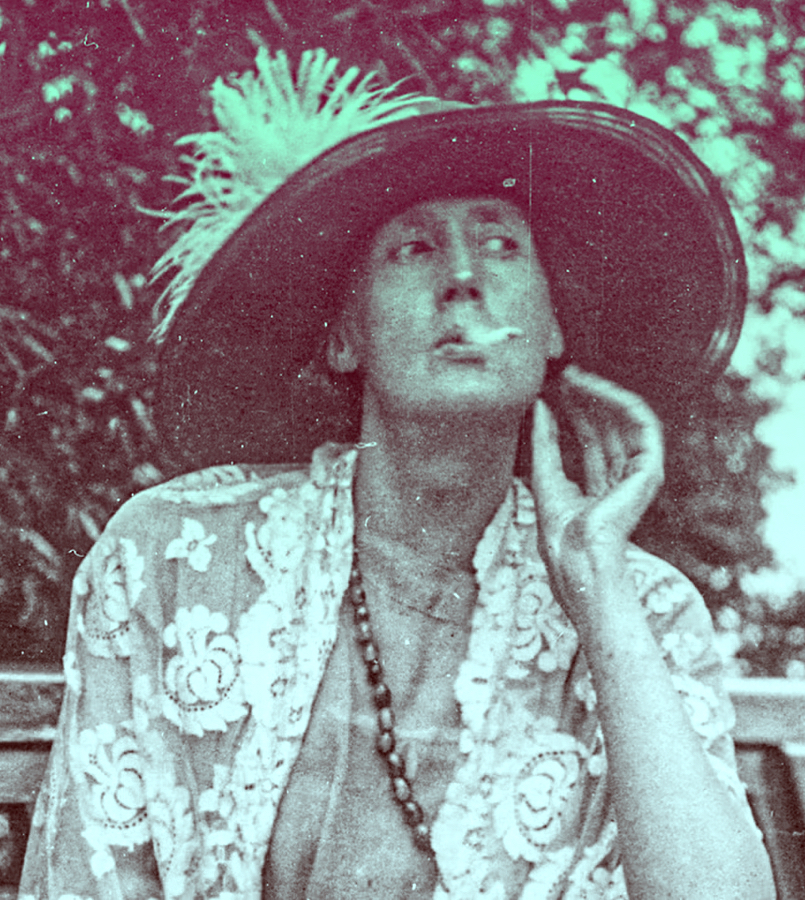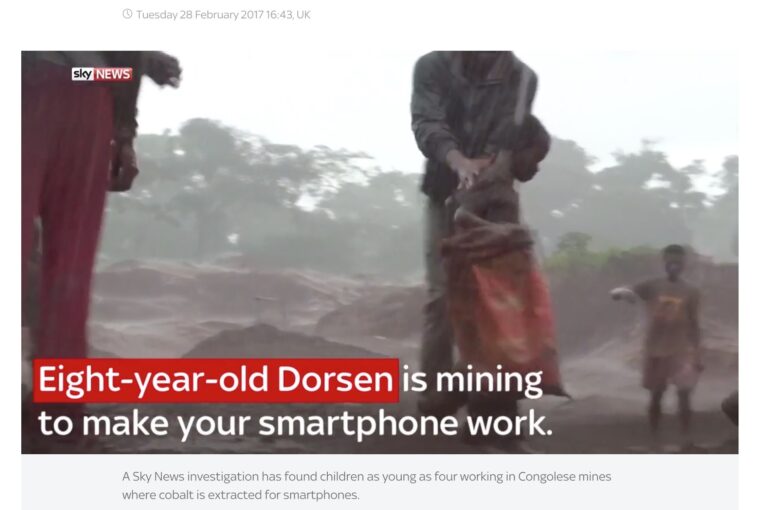Time Passes:
What Do We Do with
Woolf’s Offenses?
presented at the The 29th Annual International Conference on Virginia Woolf
Cincinnati, Ohio, USA
June 6-9, 2019
In her 1995 essay titled “Virginia Woolf and Offence”, Hermione Lee begins with nine quotations from Woolf’s writings, putting the evidence of Woolf’s racism, anti-semitism, and classism right in front of us. What Lee also does, which is of value, is to contextualize certain attacks on Woolf, to show that not everyone who is offended reaches that offense from good faith. But nonetheless, there is plenty to be offended by in Woolf.
The 2008 volume of Woolf Studies Annual includes an essay by Patricia McManus titled “The ‘Offensiveness’ of Woolf: From a Moral to a Political Reading”, which begins with Lee’s essay but deliberately sidesteps the idea of offensiveness, proclaiming it a moral question rather than a political one. She writes: “When transferred from the domain of politics, the nexus of ‘attitudes and feelings’ which had occasioned ‘offence’ demands a different critical response, one which overcomes the stasis of moral judgments by offering instead a political engagement with the specificity and limits of Woolf’s own politics” (92, emphasis in original).
McManus then proceeds to show that Woolf was not very good at being a hardline marxist, a useful intervention for anyone who had mistaken her for such. McManus proposes that Woolf was woefully inadequate and conservative in many ways, including a failure of solidarity. While I do not have the time or desire to engage with most of McManus’s critique (some of which I find valid, some of which feels to me like the effluvium of doctrinaire ideology), the question of solidarity holds much interest. Solidarity is something that clearly bothered Woolf herself, that nagged at her, that she knew she failed at. McManus is right that there are significant limits to Woolf’s politics, and solidarity is one of those limits.
Nonetheless, my own desire is to see Woolf’s limits from a sympathetic angle, or a generous angle, an angle that recognizes two things: first, Woolf’s recognition of her need to push against her limits, and second, the inevitability of our own limits.
Which brings me to an essay by Brian Morton in an issue of the New York Times from January 2019. I was struck by the headline, almost certainly not written by Morton and definitely designed to get you to click through if you encountered it via social media or any other online source: “Virginia Woolf? Snob! Richard Wright? Sexist! Dostoyevsky? Anti-Semite!” I approached the essay with baited click, but found myself pleasantly surprised by Morton’s conclusion that the value of reading writers from other ages and times is not so much to find people whose opinions flatter our own, but rather to find people whose failures and limitations remind us that we, too, are flawed, our viewpoints limited, our knowledge incomplete:
When we imagine that writers from the past are visiting our world, it subtly reinforces our complacence, our tendency to believe that the efforts at moral improvement made by earlier generations attained their climax, their fulfillment, their perfection, in us.…
If, whenever we open old books, we understand from the get-go that their authors have motes in their eyes regarding important ethical or political questions, it might help us understand that the same thing could be said of us today.
This reminded me of a seminar I attended as a student, where we had read A Room of One’s Own and Jane Marcus’s essay about Woolf’s phrase “a very fine negress”. The professor, whom I completely respect, declared, clearly with the intention of provoking us to conversation, that Woolf was a racist. We students all nodded our heads, yes yes, Woolf was a racist, clearly — and then we stopped where we should, really, it seems to me, have begun. We, a group of white people, basked in the knowledge that we, good liberal college students of extraordinarily good intentions, were not, definitely not, certainly not, absolutely not, ourselves racists. In that moment, we knew ourselves to be morally superior people to Virginia Woolf. Thus we, unintentionally, with all the best intentions, used our reading to knock Woolf down a peg and feel better about ourselves.
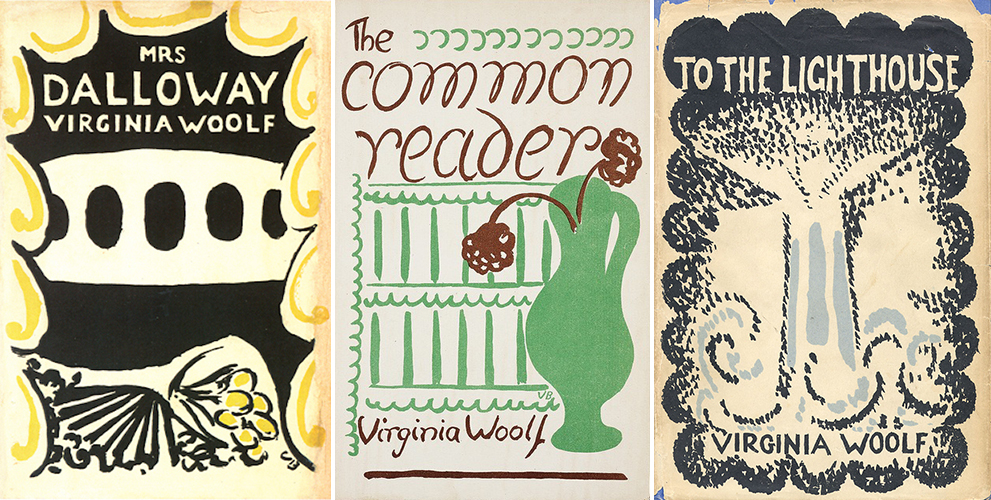
I realized soon after the class session that we had failed, failed ourselves more than anyone else, failed to have the powerful and productive conversation we could have had. I as much as anyone in that room failed, for I did not speak up, I did not ask, “Are we better than Virginia Woolf?” — and as I reflected on my failure, I thought of a key insight from Gayatri Spivak about reading and teaching: “There must be … the sense of how to train the imagination so that it can be something other than Narcissus waiting to see his own powerful image in the eyes of the other.” Spivak advocates for what she calls “a critical intimacy, not critical distance” (54).
Aghast at Woolf’s racism, we had not sought intimacy, not sought to let her limits illuminate our own, instead had kept our criticism distant, leaving it to be a criticism of her, the long-dead woman from another continent, not ourselves. It may have been that none of us had ever said, done, or thought anything remotely racist, but — even if that were, unlikely as it was, true — surely we had said, done, and thought other things that, once some time passes, future people would stand aghast at. Perhaps in the future, I will be considered a criminal for having flown to academic conferences in carbon-emitting airplanes; perhaps my occasional eating of meat will be seen as a great offense against animals (which it surely is); perhaps I will have casually written words and phrases that are, in a future context, beyond any imaginable pale. I don’t say that with an intent to belittle future judgment. For all her faults, over the course of her life, Virginia Woolf did less to destroy the biosphere than I have done already in my life, driving around and flying around, burning oil to heat my house, buying a new cell phone or a new computer, participating in the American consumer economy. Judge Woolf however you want; in terms of the future of human life on this planet, I am — and you likely are — more offensive than she was.
Further reflecting on my failure in the conversation during the seminar session, I thought of the playwright Wallace Shawn’s monologue titled The Fever, in which a nice middle-class person from a democratic country travels to a foreign place and comes to suffer not only torture but, much more deeply, a literal illness brought on by liberal guilt. But the illness makes the speaker of the monologue transcend liberal guilt, because the speaker suddenly recognizes the fundamental dilemmas of anyone of some privilege in a world of inequality:
The fact that I have [money] isn’t a fact about me like my coloring or my race. Through a series of events it came to me, but devoting my life to defending my possession of something that came to me is not an inescapable destiny. Keeping the money is just a choice I’m making, a choice I’m making every day. I could perfectly well put an end to the whole elaborate performance. If people are starving, give them food. If I have more than others, share what I have until I have no more than they do. Live simply. Give up everything. Become poor myself (67).
But the speaker of the monologue is not inclined to do this. Few of us are.
(Right now, instead of choosing to attend another academic conference, you could donate the money you would spend at that conference to an organization such as Oxfam or Unicef, and your money would go much farther toward literally saving someone’s life. Peter Singer pointed out exactly this back in 1999 in the pages of the New York Times Magazine, and even provided contact information, which I will also do right now: https://www.unicefusa.org/ for Unicef and https://give.oxfamamerica.org/ for Oxfam. Send them a few hundred dollars and you will help save a human life. Or choose not to, and instead keep reading about the nuances of offense.)
In her essay on Woolf and offense, Hermione Lee points to a passage in a 1926 letter from Woolf to Vita Sackville-West that suggests something similar to what Wallace Shawn approaches in The Fever. Woolf describes attending a lecture by Leo Tolstoy’s daughter: “Countess Tatiana spoke,” she writes, “and I hated us all, for being prosperous and comfortable; and wished to be a working woman, and wished to be able to excuse my life to Tolstoi” (Letters 3: 236). This isn’t exactly solidarity, and it’s even more muted within the context of the letter, where it is just one thing frazzling Woolf among many others, but like much of Woolf’s mature writing, it demonstrates a yearning toward something resembling solidarity — and an inability to figure out how, personally, to get there. She can recognize the problem, but she lacks the knowledge, will, imagination, and selflessness to move toward a solution. If there even is a solution.
This is the problem of what Bruce Robbins calls the beneficiary. “Who is a beneficiary?” Robbins asks, then answers: “You are, probably.” (Or else you wouldn’t have the education to even know about a book like his, published by Duke University Press, nor, we could say, would you likely be reading essays devoted to a long-dead writer.) You and I are hardly Jeff Bezos or Elon Musk or another of the wealthiest men alive, we’ve had plenty of hardships in our days, but nonetheless, we are not, for instance, workers at a Foxconn factory in Taiwan assembling iPhones, and we’re certainly not miners in the Congo digging for the cobalt and coltan ore that makes iPhones work — no, we’re the beneficiaries of that labor, that suffering, and we like our phones, we like our computers. Also, we like chocolate, much of which, the Washington Post reported in June 2019, is harvested by children in conditions one farmer compared to slavery.
Similarly, we like our ability to travel in airplanes, or, like me, to drive for a few days to go to the International Virginia Woolf Conference. We like to stay in comfortable hotels, we like to buy good meals and interesting souvenirs. We like to have some leisure in life and not think about the carbon we’re putting into the air and contributing to the global warming that’s already making so many marginalized lives unbearable. Let’s not think about the fact that our lives now are making a worse world to come for our children and grandchildren. No matter how wealthy, no matter how privileged, their lives will likely be rendered quite awful by global warming, their own existences blighted, tortured, murdered by our era’s choices.
We benefit from all sorts of things we’d rather not think about, such as, for those of us who are U.S. citizens, how our tax money funds wars that kill civilians, that kill children — oh yes, we may sign petitions or write sharply-worded op-eds or go to protests, but we probably haven’t risked having our wages garnished by becoming war tax resisters or risked spending years in jail over our resistance, no no, not us.
Or rather, I should say, not I.
And not Virginia Woolf. She and I have all sorts of obvious differences, but we are similar in that we can recognize large social problems, we can even write about them now and then, we can perhaps lose some sleep by fretting over them, we can yearn for solidarity, dream of community, but in the end … we would rather be comfortable, we would rather have time to write, time to read, time to check Facebook on our phone that runs on minerals from the Congo, and we’re glad Apple says that those minerals are now carefully sourced and do not contribute to wars or child slavery, but let’s be honest: even if, by some miracle, Apple can absolutely promise that, the minerals in our electronic devices not so long ago did, incontrovertibly, contribute to war and child slavery, and that didn’t stop us from enjoying our smartphones before, so how deeply do we really care about how much we benefit from the difficult labor, the difficult lives, of people far away? (Again, when I say we, I mean I.) I do not wish that I could excuse my life to the Countess Tolstoy, of course, since she, like Virginia Woolf, is long dead. But sometimes, late at night, alone, I very much wish that I could excuse my life to the people who make my life possible. I wish I could disavow the suffering that I benefit from.
That, Patricia McManus might say, is a fine example of morality divorced from politics. I’m inclined to agree. You do not have to be a hardline marxist to know that a morality disconnected from a political vision — a vision of action, of possibility — is not especially useful to the world. My qualms, though they may affect my sleep, do nothing to diminish war or child slavery.
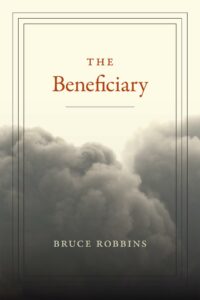
In The Beneficiary, Bruce Robbins discusses Woolf’s 1931 essay about the London docks, one of the six “London Scene” essays she wrote for Good Housekeeping magazine, and about which she complained to Ethyl Smyth that she was terribly bored because they were “pure brilliant description … and not a thought for fear of clouding the brilliancy” (Letters 4: 301). Robbins points out that the commodities Woolf mentions in the essay “seem chosen so as to avoid any hint of theft, deprivation, abuse, or injustice” (65). He points out that Woolf seems to be going out of her way to avoid offending the beneficiaries of global commerce (the readers of Good Housekeeping). However, he notes that her portrayal of trade as depending on the desires of consumers may be a subtle suggestion that consumer choices could make trade more humane; but without any mention of the victims of trade, there is no reason any of the readers of the essay would have thought of changing their habits for political reasons rather than reasons of taste or whim. Robbins suggests that Woolf is gesturing toward an analysis of a certain class of women — the class of women that read Good Housekeeping in 1931 — and their relationship to networks of power:
They are connected to power without thereby achieving either political potency or lucidity. … But the woman consumer in Woolf cannot be described as simply unenlightened or unheroic. … On the one hand, power is accompanied by confusion — confusion about how responsible one is, confusion about the ethical nature of the system one beholds. On the other hand, the connection to power is real, and with it comes an as yet unrealized and indeed unspecified possibility of achieving a degree of lucidity and political potency (Robbins 67-68).
The struggles that Robbins identifies in one 1931 essay that Woolf herself didn’t seem to take very seriously are struggles that would be repeated through the rest of her life, and would culminate with Three Guineas, a book that seems to me pulled in many of the directions Robbins identifies, though it’s more explicit about how women fit, or don’t fit, a political scheme. Much could be, and has been, said about that. But here I want to skip to to the aftermath of Three Guineas.
Three Guineas inspired many readers to write to Virginia Woolf to share their thoughts and experiences. Woolf kept the letters, and said she found them to be heartbreaking confirmation of the need for the book. (They also disprove the critics who say Woolf’s audience was the upper classes — women from all degrees of life and circumstance wrote to her.) She struck up a correspondence that would last for the rest of her life with Agnes Smith, an unemployed weaver from West Yorkshire, who wrote to tell her that she ought to write beyond just the lives of, in Woolf’s words, “the daughters of educated men” and look, Agnes Smith exhorted her, to the lives of the lower classes. In her long first letter, Smith laid out the details of her own life and struggles, saying “those problems you outline affect the working woman in a far greater degree” (Snaith 99).
Smith’s letter prompted Woolf to reply immediately that she had focused on the class she did because it was the only one she could write about from experience. In Mrs. Woolf and the Servants, Alison Light chronicles how their conversation developed over the next few years:
More letters were exchanged, and photographs of their homes, and some warmth grew between them, though they were never on first-name terms. Woolf asked her to come and visit; Agnes returned the invitation. […] In the autumn of 1940, Agnes imagined a reversal of roles with Virginia staying a week in her workman’s cottage, writing during the day, since Agnes now had war work, and then getting the meal ready for the worker’s return: ‘It would be very nice to find you waiting when I got in at night.’ … In these dark months, as Virginia felt increasingly useless, it is a pleasing fancy to imagine that cooking Agnes’s dinner, feeling wanted and appreciated, might have saved her sanity. (268)
But, alas, Woolf never visited Agnes Smith.
The fantasy of the visit is pleasing because it suggests a level of communion, even solidarity, that Woolf never achieved in her life, and that most of us don’t. But we could, perhaps, if we stayed open to invitations, if we tried to be brave. (Do I mean we? I think I mean I.) And this is why I find Woolf’s struggles and failures so compelling, so moving, so inspiring, so human.
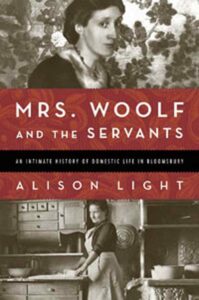
There are many evils in the world that we cannot affect, many evils that some of us, in fact, benefit from and are powerless to do anything about; there is suffering that, for the sake of our comfort and calm, we choose not to address. Even saints probably fail at solidarity now and then, and most of us are not saints.
But perhaps some of us are in a better position to write back to the Agnes Smiths of our lives than Virginia Woolf was in those terrible final years, the early years of the Second World War, a time of calamity for her. She could not accept Agnes Smith’s invitation. Maybe, though, there are invitations in our own lives that we could accept. We need to activate our imaginations. Doing so, we might move beyond that narcissistic desire Spivak identifies, the desire to see a reflection of our self in the other. Instead of reducing the world to our self, perhaps we might expand our selves into the world. How might we give the people who come after us a reality worth sharing? How might we be good ancestors?
I think again of Agnes Smith, of her yearning for friendship with Woolf, of Woolf’s clear interest in friendship with her, of the invitations from each to the other. Prompted again by Alison Light, I imagine Woolf traveling up to meet Agnes Smith and to stay at her cottage, to meet Agnes Smith’s friends and family, to be among them. I imagine how awkward everyone would be at first, and yet I know they would work through the awkwardness, they would find common ground, they would overcome their mutual offenses, they would laugh together, share stories, maybe cook together, be together — and Woolf would leave renewed and alive, and in the future, this future we can imagine for her, she might think differently and write differently because of her encounters, encounters which would have enabled for her both a certain understanding and a certain solidarity. Woolf couldn’t solve all the problems of the world, nor could she overcome all of her own prejudices, both the ones she was aware of and the ones she wasn’t, but I know she could have achieved this, I know she could have visited Agnes Smith, and it might have helped her survive the terrors of the world, and help others, too. She might have relieved some suffering.
But … alas.
And now I think of our world, I think of the suffering I pass by every day, the future disasters I contribute to, the failures of solidarity — and I wonder if I might ask myself, and ask this world: Who are my (our) Agnes Smiths? Whose cottage might we stay a week in, whose friends might we sit alongside and begin awkward conversations that maybe find their way beyond awkwardness, beyond difference and ignorance and prejudice?
Rather than see ourselves as better than Virginia Woolf (which I, myself, surely am not), perhaps we can learn from her offenses about our own.
And then perhaps we might listen and hear the person who will say to us, “It would be very nice to find you waiting when I got in at night.”

Works Cited
Lee, Hermione. “Virginia Woolf and Offence.” The Art of Literary Biography, edited by John Batchelor, Oxford UP, 1995, pp. 129–50.
Light, Alison. Mrs Woolf and the Servants: An Intimate History of Domestic Life in Bloomsbury. Bloomsbury Press, 2009.
Marcus, Jane. “‘A Very Fine Negress.’” Hearts of Darkness: White Women Write Race, Rutgers UP, 2004, pp. 24-58.
McManus, Patricia. “The ‘Offensiveness’ of Virginia Woolf: From a Moral to a Political Reading.” Woolf Studies Annual, vol. 14, 2008, pp. 91–138.
Morton, Brian. “Virginia Woolf? Snob! Richard Wright? Sexist! Dostoyevsky? Anti-Semite!” The New York Times, 11 Jan. 2019.
Robbins, Bruce. The Beneficiary. Duke UP, 2017.
Shawn, Wallace. The Fever. Grove Press, 2004.
Singer, Peter. “The Singer Solution to World Poverty.” The New York Times, 5 Sept. 1999.
Snaith, Anna. “Three Guineas Letters.” Woolf Studies Annual, vol. 6, Pace University Press, 2000, pp. 17–168.
Spivak, Gayatri Chakravorty. Readings. Seagull Books, 2014.
Whoriskey, Peter, and Rachel Siegel. “Cocoa’s Child Laborers.” Washington Post, 5 June 2019.

Unless otherwise noted, all content of this site is licensed under a Creative Commons Attribution-NonCommercial-ShareAlike 4.0 International License.
